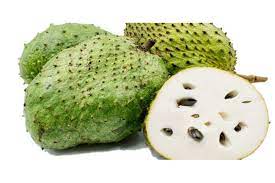In the pursuit of overall well-being, we often focus on physical health, exercise, and wholesome diets. However, a growing body of research highlights the intricate link between nutrition and mental fitness. As we navigate the complex landscape of modern life, understanding how the food we consume influences our cognitive well-being becomes paramount. This article delves into the fascinating intersection of nutrition and mental health, shedding light on the pivotal role that food choices play in nurturing a healthy mind.
The Gut-Brain Axis: A Biological Symphony:
Recent scientific breakthroughs have brought to light the remarkable connection between the gut and the brain, known as the gut-brain axis. This bidirectional communication system involves neural, hormonal, and immunological pathways. The composition of the gut microbiota, influenced by our dietary habits, plays a crucial role in this intricate relationship. A diet rich in fiber and fermented foods has been linked to a diverse and flourishing gut microbiome, which in turn positively impacts mental health.
Omega-3 Fatty Acids: Nourishing the Brain:
Omega-3 fatty acids, predominantly found in fatty fish, flaxseeds, and walnuts, are celebrated for their neuroprotective properties. These essential fats contribute to the structural integrity of brain cell membranes and play a pivotal role in neurotransmitter function. Studies suggest that a diet deficient in omega-3 fatty acids may be associated with an increased risk of mental health disorders, emphasizing the importance of incorporating these nutrient-rich foods into our diets.
The Impact of Antioxidants on Cognitive Function:
Antioxidants, abundant in colorful fruits and vegetables, play a vital role in protecting the brain from oxidative stress. The brain, being particularly susceptible to oxidative damage, benefits from the powerful defense mechanism provided by antioxidants. Consuming a rainbow of plant-based foods not only supports overall health but also contributes to cognitive resilience and may lower the risk of cognitive decline associated with aging.
Blood Sugar Regulation and Mood Stability:
The ebb and flow of blood sugar levels have a direct impact on our mood and cognitive function. Diets high in refined sugars and processed carbohydrates can lead to rapid spikes and crashes in blood sugar levels, resulting in irritability, fatigue, and difficulty concentrating. Opting for complex carbohydrates, such as whole grains, and incorporating protein-rich foods helps stabilize blood sugar levels, promoting sustained energy and improved mental focus.
The Role of Nutrient Deficiencies in Mental Health:
Nutrient deficiencies, such as those in vitamin D, B vitamins, and minerals like zinc and magnesium, have been implicated in various mental health disorders. Ensuring an adequate intake of these essential nutrients is crucial for neurotransmitter synthesis, mood regulation, and overall cognitive function. A well-balanced diet that includes a variety of nutrient-dense foods is key to preventing deficiencies and supporting mental well-being.
Conclusion:
In the intricate dance of nutrition and mental fitness, our dietary choices take center stage. As we strive for holistic health, acknowledging the profound impact of nutrition on our cognitive well-being is imperative. By making informed food choices, embracing a diverse and balanced diet, and recognizing the symbiotic relationship between our gut and brain, we can pave the way for a resilient mind and a healthier, happier life. So, let food be not just sustenance for the body but also nourishment for the mind, offering a banquet of well-being for the body and soul.































